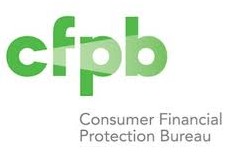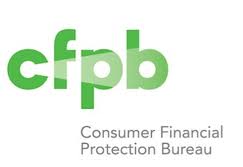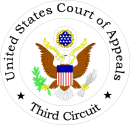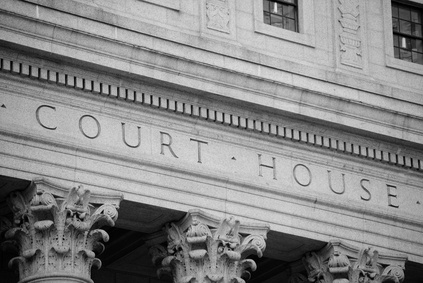The Federal Trade Commission had an epiphany last week – debt collectors must disclose in their communications that a debt subject to a statute of limitations defense creates a “legal right” which prevents a creditor from filing a lawsuit. Read it here: FTC Press Release, 1/30/12. It only took the federal agency 33 years of enforcing the Fair Debt Collection Practices Act (15 U.S.C. § 1692) (the “FDCPA”) to come to this conclusion. Quite a milestone and quite a reflection of our times. Although I haven’t been working on FDCPA issues quite as long as my colleagues in Washington, I’ve…
On Day Two of the Consumer Financial Protection Bureau (“CFPB”), it unveiled its online Credit Card Complaint form. It is available here: http://tinyurl.com/3o9p8pr. Enter a complaint and the CFPB says “We’ll forward your issue to your credit card company, give you a tracking number, and keep you updated on the status of your complaint.” In keeping with the unique look of the CFPB’s website, the form is neat, sleek and real simple, but there’s a problem – credit card holders may lose important rights when deciding to use the CFPB’s portal as their only form of making disputes. Credit card…
A claim that a debt collector violated §1692g(a) of the Fair Debt Collection Practices Act (“FDCPA”) must be filed within one-year of the first communication, the Third Circuit recently held in Peterson v. Portfolio Recovery Associates, LLC, Case Nos: 10-2824 & 10-4013, 2011 U.S. App. LEXIS 11453 (3d Cir. June 6, 2011). In this decision, the first by a circuit court on the issue, the court specifically rejects the notion that subsequent communications by a debt collector can constitute separate and discreet violations of §1692g(a). Section §1692g(a) provides that a debt collector must provide a consumer with certain written disclosures…
Yesterday, the Third Circuit again held that a communication from a debt collector to a debtor’s counsel is not barred by New Jersey’s common-law litigation privilege. The Court reversed the District Court’s dismissal of a §1692f(1) claim relying on its decision last month in Allen v. LaSalle Bank. As I wrote last month in discussing Allen, the appeal in Ogbin was pending at the time Allen was decided (http://tinyurl.com/4rsyevr). This decision did not offer any surprises or further reasoning into why the state common-law litigation privilege is ineffective against FDCPA claims. The decision is available here: Ogbin v Fein Such
The FDCPA does not serve as a “back door” which would allow such a private right of action [for a bankruptcy discharge violation].
When a New Jersey law firm purchased charged-off debt, then filed suit to collect it, it found itself facing a Fair Debt Collection Practices Act (“FDCPA”) putative class action. The lawsuit alleged that Hudson Law Offices, P.C. violated the New Jersey Professional Services Corporation Act (“PSCA”) by engaging in the business of purchasing defaulted credit-card debt and then suing alleged consumers to collect those debts. In denying the law firm’s motion to dismiss the Complaint, a New Jersey Federal Court Judge found that the a law firm organized under the New Jersey PSCA is prohibited from engaging in any business…
In Bank of America v. Alvarado, BER-F-47941-08 (January 7, 2011), Alvarado obtained a mortgage loan from Washington Mutual in 2006. After the loan was closed, Washington Mutual lost the note. It made an Affidavit of Lost Note dated July 14, 2006. Ownership of the mortgage loan, which included the Affidavit of Lost Note, was subsequently assigned to LaSalle Bank, as a trustee of a pool of mortgage loans. LaSalle Bank was then acquired in a merger by Bank of America. When the loan defaulted in 2008, Bank of America commenced a foreclosure action. Alvarado defended the foreclosure action on the…
In a blow to debt collection attorneys, the Third Circuit ruled that a letter sent by a foreclosure attorney to the mortgagee’s attorney could form the basis of a violation under 15 U.S.C. 1692f(1) of the Fair Debt Collection Practices Act. In addition, the debt collection attorney is not shielded by New Jersey’s common-law litigation privilege. The decision, Allen v. LaSalle, is available here: Allen v LaSalle Bank. In response to a request from the debtor’s attorney, the debt collection attorney sent a payoff letter which allegedly sought to collect fees and charges not permitted by New Jersey law. The…
An Illinois attorney faces disciplinary discipline charges allegeing the attorney violated the Rules of Professional Conduct when he paid referral fees to a non-lawyer. The attorney was a principal in the “Consumer Credit Defense Network” (CCDN) self-styled as “a network of attorneys across the nation the nation . . . that specialize in the unsecured debt relief, negotiation and litigation arena (sic).” In addition to the referral fees, the Board alleges that the attorney deceived his clients in the nature of services provided. A client would receive a “Debt Reconciliation Program Enrollment Manual” after paying a fee between $2,500 and $4,800. The Manual outlined…






